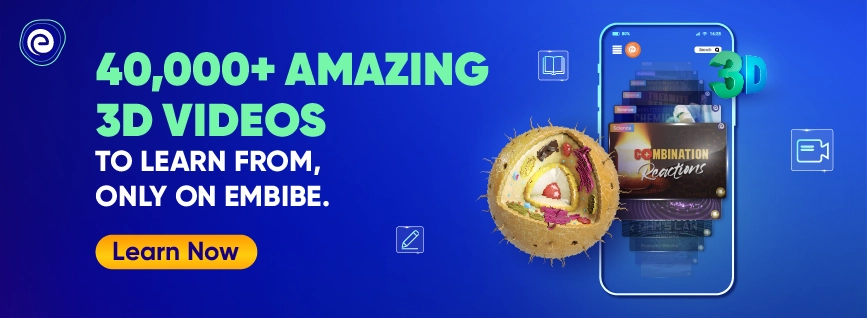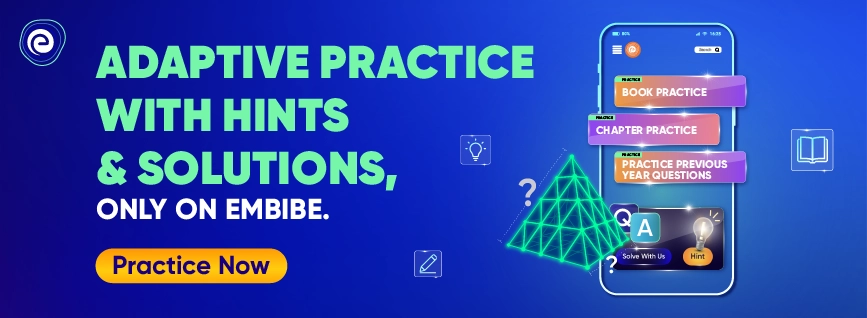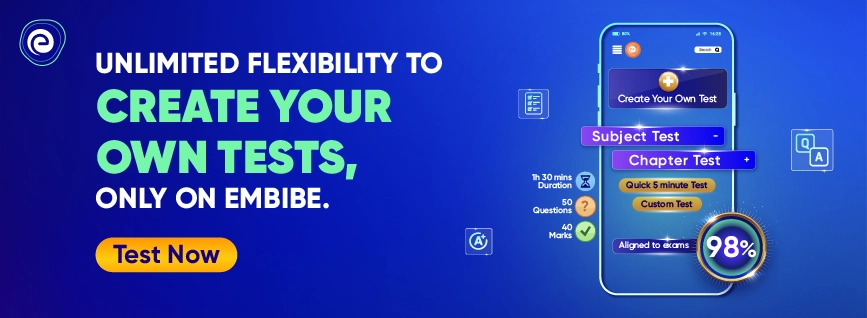- Written by Hrushikesh Vyas
- Last Modified on 18-11-2024
Himachal Pradesh Board Class 7 Exam 2025
The Himachal Pradesh Board of School Education or HPBOSE, Dharamshala was formed in 1969 by the Himachal Pradesh Act No. 14 of 1968 in the Vidhan Sabha of Himachal Pradesh. The board conducts the board exams and is in charge of regulating the school-level exams as well. The Himachal Pradesh Board Class 7 exam is conducted at the school level by following the guidelines set by the board. The board also prescribes the curriculum and syllabus for Class 7.
Class 7 is a foundational stage in students’ life where they strengthen their basics and learn concepts that will be applied in their higher classes. Therefore, students should prepare for the exam thoroughly right from the start. This article discusses the Himachal Pradesh Board Class 7 in detail. Read on to know more about the exam.
Himachal Pradesh Board Class 7 Exam Summary
The Himachal Pradesh Board exam is conducted by the school authorities and the respective schools have the right to design the question papers while adhering to the board’s norms and guidelines. HPBoSE follows the Continuous and Comprehensive Evaluation(CCE) framework; according to the guidelines, CCE evaluates performance and growth through formative and Summative Assessments (FA) and Summative Assessments (SA). However, before going into further details, let us look at the table below for the HPBOSE Class 7 exam summary.
| Particulars |
Details |
|
Exam Name
|
Himachal Pradesh Board Class 7
|
|
Board Name
|
Himachal Pradesh Board of School Education
|
|
Mode of Conduct
|
Offline
|
|
Frequency
|
Term-wise
|
|
Subjects
|
Mathematics, Science, Social Science, English and any other regional language
|
HP Board Official Website
https://hpbose.org/Home.aspx
Himachal Pradesh Board Class 7 Exam Pattern
Selection Process
The board follows the Continuous and Comprehensive Evaluation, CCE to assess students’ performance on a daily basis and from an exam point of view. CCE implements the Formative and Summative assessment to evaluate the students’ skills and potential. Knowing the exam pattern can help students prepare for the exam in the right way. The examination is divided into two terms, the weightage of which is given in the table below:
|
Term
|
Assessment (%)
|
Total (%)
|
|
Formative Assessment (FA)
|
Summative Assessments (SA)
|
|
Term I
|
10%
|
40%
|
50%
|
|
Term II
|
10%
|
40%
|
50%
|
|
Total
|
20%
|
80%
|
100%
|
HP Board Class 7 Exam Pattern Details - Total Time
Since there are two types of assessment carried out for HP Board Class 7 students, the total time for both of them differs. The Formative Assessment can be carried out by teachers to evaluate and guide students on a daily basis. The Summative assessment on the other hand is a form of test that is usually conducted as term-wise exams or annual exams. The total time duration for the assessments is given in the table below:
| Type of Assessment |
Duration |
| Formative Assessment |
1.5 hours or 90 minutes |
| Summative Assessment |
2.5 hours or 150 minutes |
Himachal Pradesh Board Class 7 Syllabus
The syllabus and subjects for Class 7 are decided by the HPBOSE. But students have thedom to select one language, like Hindi, Sanskrit, a foreign language or regional language, etc., out of two languages apart from English. The syllabus includes all the important topics from Science, Social Science, and Mathematics for the grade that is as per the standards of any other board or CBSE. Also, the syllabus is continuously updated to meet the new standards. Knowing the syllabus allows students to study the right chapters and prepare for the exam accordingly. The section below provides the HP Board Class 7 subject-wise syllabus.
HPBOSE Class 7 Mathematics Syllabus
The NCERT (National Council of Educational Research and Training) syllabus helps to focus learners on realising that mathematics relates to our experiences and is used in daily life. It emphasises the development of mathematical understanding and thinking in the child. Students can find the HPBOSE Class 7 Maths syllabus in the table below:
| Chapter No. |
Chapter Name |
| Chapter 1 |
Integers |
| Chapter 2 |
Fractions and Decimals |
| Chapter 3 |
Data Handling |
| Chapter 4 |
Simple Equations |
| Chapter 5 |
Lines and Angles |
| Chapter 6 |
The Triangle and its Properties |
| Chapter 7 |
Congruence of Triangles |
| Chapter 8 |
Comparing Quantities |
| Chapter 9 |
Rational Numbers |
| Chapter 10 |
Practical Geometry |
| Chapter 11 |
Perimeter and Area |
| Chapter 12 |
Algebraic Expressions |
| Chapter 13 |
Exponents and Powers |
| Chapter 14 |
Symmetry |
| Chapter 15 |
Visualizing Solid Shapes |
HPBOSE Class 7 Science Syllabus
The NCERT (National Council of Educational Research and Training) syllabus is framed so that learners can understand the concepts without any burden by focusing on interesting activities, experiments, projects, etc. Class 7 Science includes chapters like Heat, Physical and Chemical Changes, Respiration in Organisms, etc. Students can find the detailed syllabus in the table below:
| Chapter No. |
Chapter Name |
| Chapter 1 |
Nutrition in Plants |
| Chapter 2 |
Nutrition in Animals |
| Chapter 3 |
Fibre to Fabric |
| Chapter 4 |
Heat |
| Chapter 5 |
Acids, Bases, and Salts |
| Chapter 6 |
Physical and Chemical Changes |
| Chapter 7 |
Weather, Climate and Adaptation of Animals to Climate |
| Chapter 8 |
Winds, Storms, and Cyclones |
| Chapter 9 |
Soil |
| Chapter 10 |
Respiration in Organisms |
| Chapter 11 |
Transportation in Animals and Plants |
| Chapter 12 |
Reproduction in Plants |
| Chapter 13 |
Motion and Time |
| Chapter 14 |
Electric Current and Its Effects |
| Chapter 15 |
Light |
| Chapter 16 |
Water: A Precious Resource |
| Chapter 17 |
forest: Our Lifeline |
| Chapter 18 |
Waste Water Story |
HPBOSE Class 7 Social Science Syllabus
Social Science is a fundamental part of general education since it aims to develop an empirical, reasonable and humane outlook. The Social Science NCERT (National Council of Educational Research and Training) curriculum draws its content mainly from Civics, History, and Geography. Students can refer to the table below for the detailed HP Board Class 7 Social Science syllabus:
| Chapter No. |
Chapter Name |
Section |
| Chapter 1 |
On Equality |
Civic |
| Chapter 2 |
Role of Government in Health |
| Chapter 3 |
How the State Government Works |
| Chapter 4 |
Growing Up as Boys and Girls |
| Chapter 5 |
Women Change the World |
| Chapter 6 |
Understanding Media |
| Chapter 7 |
Understanding Advertising |
| Chapter 8 |
Markets Around Us |
| Chapter 9 |
A Shirt in the Market |
| Chapter 10 |
Tracing Changes Through a Thousand Years |
History |
| Chapter 11 |
New Kings and Kingdoms |
| Chapter 12 |
The Delhi Sultans |
| Chapter 13 |
The Mughal Empire |
| Chapter 14 |
Rulers and Buildings |
| Chapter 15 |
Towns, Traders, and Craftsperson |
| Chapter 16 |
Tribes, Nomads, and Settled Communities |
| Chapter 17 |
Devotional Paths to the Divine |
| Chapter 18 |
The Making of Regional Cultures |
| Chapter 19 |
Eighteenth- Century Political formations |
| Chapter 20 |
Environment |
Geography |
| Chapter 21 |
Inside Our Earth |
| Chapter 22 |
Our Changing Earth |
| Chapter 23 |
Air |
| Chapter 24 |
Water |
| Chapter 25 |
Natural Vegetation and Wildlife |
| Chapter 26 |
Human Environment Settlement, Transport and Communication. |
| Chapter 27 |
Human Environment and Interaction – The Tropical and Subtropical Region |
| Chapter 28 |
Life in Temperate Grasslands |
| Chapter 29 |
Life in the Deserts |
HPBOSE Class 7 English Syllabus
The NCERT (National Council of Educational Research and Training) English syllabus is constructed so that it promotes language growth, vocabulary development through reading extensively with comprehension and interest and writing activities of a higher order. HPBoSE Class 7 has two NCERT-prescribed textbooks. The books are Honeycomb and An Alien Head Supplementary reader. The detailed syllabus for both textbooks are given below:
HPBOSE Class 7 English Syllabus: Honeycomb
There are 19 chapters in total in the textbook Honeycomb. The detailed syllabus is given in the table below:
| Chapter No. |
Chapter Name |
| Chapter 1 |
Three Questions |
| Chapter 2 |
A Gift of Chappals |
| Chapter 3 |
Gopal and the Hilsa Fish |
| Chapter 4 |
The Ashes that Made Trees Bloom |
| Chapter 5 |
Quality |
| Chapter 6 |
Expert Detectives |
| Chapter 7 |
The Invention of Vita – Wonk |
| Chapter 8 |
Fire Friend and Foe |
| Chapter 9 |
A Bicycle in Good Repair |
| Chapter10 |
The Story of Cricket |
| Chapter |
Name of the Poem |
| Chapter 11 |
The Squirrel |
| Chapter 12 |
The Rebel |
| Chapter 13 |
The Shed |
| Chapter 14 |
Chivvy |
| Chapter 15 |
Trees |
| Chapter 16 |
Mystery of the Talking Fan |
| Chapter 17 |
Dad and the Cat and the Tree |
| Chapter 18 |
Meadow Surprises |
| Chapter 19 |
Garden Snake |
HPBOSE Class 7 English Syllabus: Alien Hand
An Alien Hand is another textbook included in the HPBOSE Class 7 English curriculum. The detailed syllabus is given in the table below:
| Chapter No. |
Chapter Name |
| Chapter 1 |
The Tiny Teacher |
| Chapter 2 |
Bringing Up Kari |
| Chapter 3 |
The Desert |
| Chapter 4 |
The Cop and the Anthem |
| Chapter 5 |
Golu Grows A Nose |
| Chapter 6 |
I Want something In The Cage |
| Chapter 7 |
Chandni |
| Chapter 8 |
The Bear Story |
| Chapter 9 |
A Tiger In The House |
| Chapter10 |
An Alien Hand |
HPBoSE Syllabus for Class 7 English Grammar
Apart from this, Grammar is also an important part of the English Syllabus. The topics included under the English Grammar section are given in the table below:
| Chapter No. |
Chapter Name |
|
Chapter 1
|
Determiners
|
|
Chapter 2
|
Linking Words,
|
|
Chapter 3
|
Adverbs
|
|
Chapter 4
|
Tense Forms
|
|
Chapter 5
|
Clauses
|
|
Chapter 6
|
Passivisation
|
|
Chapter 7
|
Adjectives (Comparative and Superlative)
|
|
Chapter 8
|
Modal Auxiliaries
|
|
Chapter 9
|
Word Order in Sentence Types
|
|
Chapter 10
|
Reported Speech
|
HPBOSE Class 7 Hindi Syllabus
The syllabus for HPBoSE Class 7 Hindi comprises Grammar, Composition and Literature (Prose and Poetry). The students must know the HPBoSE Class 7 Syllabus for Hindi. On this page, we have provided all the important topics or chapters for Hindi Class 7. It will be beneficial for those students who want to prepare well for Hindi. Make sure to go through the HPBoSE Class 7 Hindi syllabus well.
HPBOSE Class 7 Hindi syllabus has been divided into the following sections:
- Hindi Syllabus for Vasant
- Hindi Syllabus for Durva
- Hindi Grammar Syllabus
HPBOSE Class 7 Hindi Syllabus: Vasant
The Hindi textbook Vasant has 20 chapters in total. The detailed syllabus for each is given in the table below:
| Chapter No. |
Chapter Name |
| Chapter-1 |
हम पंछी उन्मुक्त गगन क |
| Chapter-2 |
दादी माँ |
| Chapter-3 |
हिमालय की बेटियां |
| Chapter-4 |
कठपुतली |
| Chapter-5 |
मीठाईवाला |
| Chapter-6 |
रक्त और हमारा शरीर |
| Chapter-7 |
पापा खो गए |
| Chapter-8 |
शाम एक किशान |
| Chapter-9 |
चिड़िया की बच्ची |
| Chapter-10 |
अपूर्व अनुभव |
| Chapter-11 |
रहीम की दोहे |
| Chapter-12 |
कंचा |
| Chapter-13 |
एक तिनका |
| Chapter-14 |
खानपान की बदलती तस्वीर |
| Chapter-15 |
नीलकंठ |
| Chapter-16 |
भोर और बरखा |
| Chapter-17 |
वीर कुवर सिंह |
| Chapter-18 |
संघर्ष के कराण मैं तुनुकमिजाज हो गया धनराज |
| Chapter-19 |
आश्रम का अनुमानित व्यय |
| Chapter-20 |
विप्लव गायन |
HPBOSE Class 7 Hindi Syllabus: Durva
The detailed syllabus for the Hindi textbook Durva for HPBOSE Class 7 is given in the table below:
| Chapter No. |
Chapter Name |
| Chapter-1 |
चिड़िया और चुरुंगुन |
| Chapter-2 |
सबसे सुंदर लड़की |
| Chapter-3 |
मैं हूँ रोबोट |
| Chapter-4 |
गुब्बारे पर चीता |
| Chapter-5 |
थोड़ी धरती पाऊँ |
| Chapter-6 |
गारो |
| Chapter-7 |
पुस्तकें जो अमर हैं |
| Chapter-8 |
काबुलीवाला |
| Chapter-9 |
विश्वेश्वरैया |
| Chapter-10 |
हम धरती के लाल |
| Chapter-11 |
पोंगल |
| Chapter-12 |
शहीद झलकारीबाई |
| Chapter-13 |
नृत्यांगना सुधा चंद्रन |
| Chapter-14 |
पानी और धूप |
| Chapter-15 |
गीत |
HPBoSE Class 7 Hindi Syllabus: Hindi Grammar
Grammar is an important section in any language subject. The syllabus for HPBOSE Class 7 Hindi Grammar is tabulated below:
| HPBoSE Class 7 Hindi Grammar Syllabus |
HPBoSE Class 7 Hindi Grammar Syllabus |
| भाषा और व्याकरण |
क्रिया |
| वर्ण विचार |
काल |
| शब्द विचार |
वाच्य |
| वर्तनी |
अव्यय |
| संज्ञा |
संधि |
| लिंग (संज्ञा के विकार) |
समास |
| वचन |
उपसर्ग एवं प्रत्यय |
| कारक |
वाक्य |
| सर्वनाम |
वाक्य अशुद्धियाँ एवं संशोधन |
| विशेषण |
विराम-चिह्न |
| शब्द-भंडार |
मुहावरे एवं लोकोक्तियाँ |
Himachal Pradesh Board Class 7 Study Tips to Maximise Score
Preparing for any exam requires a proper strategy to ensure that students score good marks in all the subjects. A study plan and some tips go a long way in helping students ace the exam and ease the learning process. We have come up with a detailed study plan and some preparation tips below that can be beneficial for students appearing for the HP Board Class 7 exam.
HP Board Class 7 Preparation Tips
Preparation tips help make studies easier and more smooth. Besides being thorough with all the subjects and their chapters, referring to the tips maximise students’ output to the efforts they are giving. They can refer to the preparation tips below to ace their HP Board Class 7 exam:
- Students should be aware of their strengths and weaknesses concerning all the subjects.
- For the chapters that include calculations, we should try to write and practice most of them ourselves. For example, many mathematics chapters may contain problems that involve calculations, in such types of questions, we should avoid using calculators. This will increase our calculation speed and accuracy.
- If at any time one gets stuck or faces any difficulties in understanding any concept, then they can refer to the study materials at Embibe that provide the best video lectures and solved questions, that aids in understanding even the most difficult concepts.
- The golden rule is to distribute adequate time to the subjects and study every day. Students are recommended to keep the days near the exam only for revisions.
- Every subject is interesting and equally important. Never neglect any of the subjects or chapters. They can practice questions for better comprehension and also get more such questions on Embibe.
- Attempt several mock tests to get accustomed to the questions and be aware of where they need to improve.
HP Board Class 7 Detailed Study Plan
A detailed study plan is a well-structured plan for proper utilization of the study time. This will help students be more efficient in their studies and complete their syllabus on time. Follow the study plan below for reference:
- It is always better to create a timetable for studying each day. One should devote at least four to five hour to self-study daily.
- Develop a habit of making short notes. This improves their ability to understand and these notes can also be used for revision purposes
- While studying any subject, try to connect them to real-life situations. This will help them understand and grasp concepts better and faster.
- Embibe has created interesting and creative videos and practice sessions on 7th HPBoSE topics, and if one needs a better understanding of all the concepts, then it is highly recommended to use Embibe and get the most out of the learning journey.
- They can practice questions and take mock tests for each chapter to have an intensive preparation. Also, they should try to complete their syllabus a month before the exam to have ample time for revision.
FAQs on Himachal Pradesh Board Class 7 Exam
Here are some frequently asked questions about the Himachal Pradesh Board Class 7 exam:
Q: How many subjects are there in HPBoSE Class 7?
Ans: In HPBOSE Class 7, there are three core subjects: Mathematics, Science, and Social Science, and two languages: English, and one optional language like Hindi, Sanskrit, regional languages, foreign languages, etc.
Q: Are the board exams held for HPBOSE Class 7?
Ans: No, there are no board exams for Class 7. The students are evaluated by the school-level administration adhering to the norms of the HPBOSE.
Q: What are some preparation tips for HP Board Class 7 exam?
Ans: A detailed study plan and some preparation tips for HP Board Class 7 exam are discussed in detail on this page.
Q: Where can I get study materials for Himachal Pradesh Board Class 7 exam?
Ans: Embibe is an excellent platform that provides study materials like ebooks, 3D videos, practice questions, and many more for Himachal Pradesh Board Class 7 exam.
Q: Where can I take mock tests for Himachal Pradesh Board Class 7 Maths?
Ans: Students can take mock tests on Embibe for the Himachal Pradesh Board Class 7 Maths.
Himachal Pradesh Board Class 7 List of Educational Institutes
At present, more than 8000 schools are affiliated with HPBOSE. These schools offer quality education that enhances students’ skills and potential. The board has set up more than 1846 examination centres throughout the state. Some of the schools and their location are given in the table below:
| Sl. No. |
School Name and Location |
| 1. |
Government Senior Secondary School, Baragaon, Shimla |
| 2. |
Government Senior Secondary School |
| 3. |
Munish Bahali, Rampur |
| 4. |
Kendriya Vidyalaya, Keylong |
| 5. |
Kendriya Vidyalaya Jakhoohills Shimla |
| 6. |
Kendriya Vidyalaya Jutogh Cantt, Shimla |
| 7. |
Sainik School, Sujanpur Tira |
| 8. |
Kasauli International Public School |
| 9. |
Government Senior Secondary School, Rajwari |
| 10. |
Hainault Public School, Shimla |
| 11. |
M.S Public School, Malot |
| 12. |
Aadhunik Public School, Sindhbari |
| 13. |
Abdul Rehman School, Shimla |
| 14. |
Government High School, Shimla |
| 15. |
Shimla Public School, Shimla Dhami Public School, Dhamia |
| 16. |
Alpine Public School, Nalagarh |
| 17. |
Sacred Heart Sr. Sec. School, Sidhpur |
| 18. |
Kasauli International Public School, Dharampur |
| 19. |
Govind Memorial Model Public School Chail, Kangar Kothi |
| 20. |
Gandhir Public School, Gandhir |
Himachal Pradesh Board Class 7 List of Future Exams
List of Future Exam
Aside from this school-level exam, there are a number of national and international competitive examinations held every year. Students' confidence and enthusiasm in subjects are boosted by these tests. Some of the competitive exams for which students can appear are:
- International Science Olympiad (ISO)
- International Maths Olympiad (IMO)
- English International Olympiad (EIO)
- General Knowledge International Olympiad (GKIO)
- International Computer Olympiad (ICO)
- International Drawing Olympiad (IDO)
- National Essay Olympiad (NESO)
- National Social Studies Olympiad (NSSO)
1. National Talent Search Examination or NTSE
- It is one of the most prominent competitive examinations for students at a national level. The aim of NTSE is to identify students with extraordinary intelligence and academic talent. Students who pass this two-tier test are awarded a full-year financial scholarship.
- Subjects: Science, Mathematics, Social Science, Mental Ability and General Awareness
- Conducting Body: National Council of Educational Research and Training (NCERT)
2. National Level Science Talent Search Exam or NLSTSE
- From grades II to XII, this diagnostic test identifies gifted students. These tests offer intriguing questions that need critical thinking rather than rote memorisation, as with traditional methods. NSTSE gives a thorough skill-by-skill assessment, emphasising students' strengths and deficiencies.
- Subjects: Maths, Physics, Chemistry, Biology, General Questions
- Conducting Body: Unified Council
3. Indian National Olympiad (INO)
- Olympiads are a multi-stage process funded financially by the Indian government. The NSE (National Standard Examination), which is held for each topic and is fully controlled and managed by the Indian Association of Physics Teachers, is the first stage of the Indian National Olympiad (IAPT). HBCSE, on the other hand, is in charge of the next four stages.
- These are held in five stages, that are as follows:
- Stage I: National Standard Examination (NSE)
- Stage II: Indian National Olympiad
- Stage III: Orientation cum Selection Camp (OCSC)
- Stage IV: Pre-departure Training Camp (PDT)
- Stage V: Participation in International Olympiad
- Subjects: Physics, Chemistry, Biology, Astronomy and Junior Science
- Conducting Body: Jointly conducted by Indian Association of Physics Teachers (IAPT) & Homi Bhabha Centre for Science Education (HBCSE)
4. Science Olympiad Foundation
- This non-profit organisation, founded by prominent academicians, scientists, and media figures, holds a competitive test for students in grades I to XII. Separate tests are held by the foundation for topics such as Computer Science(National Cyber Olympiad), Math (International Maths Olympiad), Science (National Science Olympiad), and English (National English Olympiad) (International English Olympiad).
- Subjects: Science, mathematics, computer education, English, sports and professional courses
- Conducting Body: Science Olympiad Foundation
5. GeoGenius
- GeoGenius has set out on a quest to pique students’ interest in Geography and raise public knowledge and awareness on the subject. These exams are open to students in classes II to XII.
6. Kishore Vigyan Protsahan Yojana or KVPY
- The Department of Science and Technology conducts a national level competitive test in Basic Sciences for students in grades XI and XII. The chosen candidates would be eligible for admission to the Indian Institute for Science Education and Research's five-year integrated MS programme and also entitled to scholarship. The program's goal is to find students who have a natural flair for research and higher studies.
- Conducted Body (funded by): Department of Science and Technology of the Government of India
7. Silverzone Olympiads
- The Silverzone Foundation is a non-profit organisation dedicated to raising academic awareness among school students in India and worldwide. It is held in many disciplines for students in grades I to XII and guarantees that they achieve not only on professional or career levels but also on social levels. These tests also promote different skills like creative thinking and problem-solving abilities.
- Subject: Computer, Mathematics, Science and English Language
- Conducted by: Silverzone Foundation
8. National Interactive Maths Olympiad or NIMO
- This national-level test is for students in grades V to XII, intending to reduce the fear of arithmetic from students' minds. It assesses their mathematical abilities. By adding interactive events such as interactive Olympiads, workshops, and seminars, NIMO makes Maths more enjoyable.
- Subjects: Math
- Conducting Body: Eduheal Foundation
9. National Biotechnology Olympiad or NBO
- This test consists of 50 questions for 50 points and is open to grades I to XII from all disciplines. Many schools have praised it for its Biotechnology Activity Books & Work Books, in addition to its yearly e-newspapers. It aims to motivate the younger minds to learn more about biotechnology concerns and raise awareness among them.
- Subjects: Math
- Conducting Body: Eduheal foundation
10. Asset (Assessment of Scholastic Skills Through Educational Testing)
- It's a skill-based assessment exam that has been scientifically created to break from the notion of rote learning. It is intended for students in grades III to X, and it assesses how well pupils have grasped the school curriculum. These tests are based on the curriculum of the CBSE, ICSE, IGCSE, and major state boards.
- Subjects: English, Mathematics and Science (Social Studies and Hindi – Optional)
- Conducting Body: Educational Initiatives Pvt. Ltd.















































